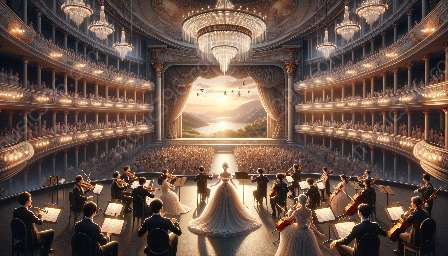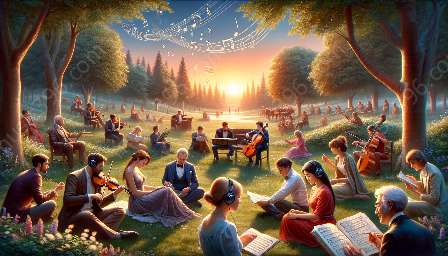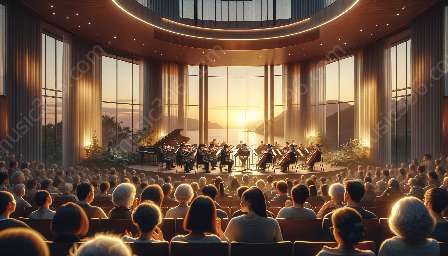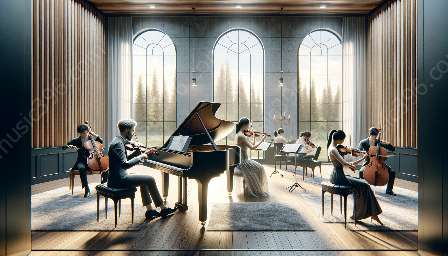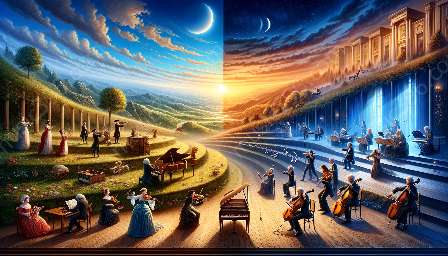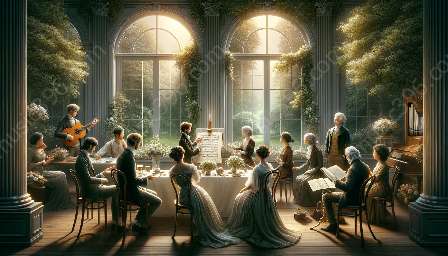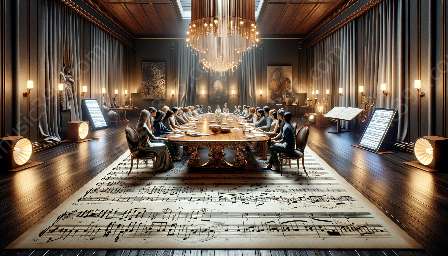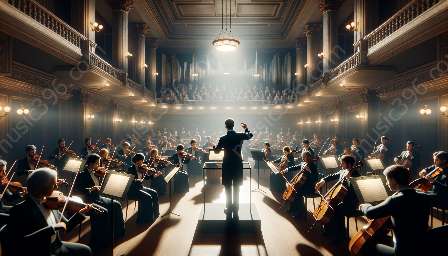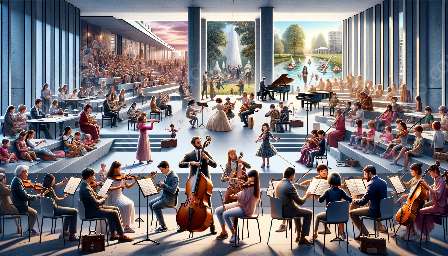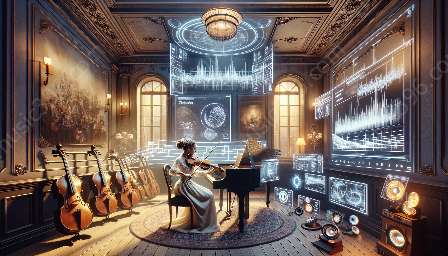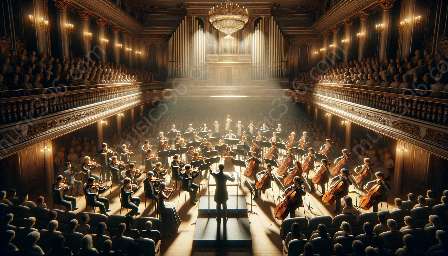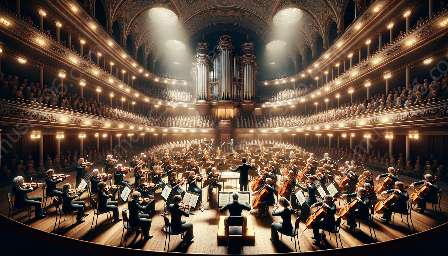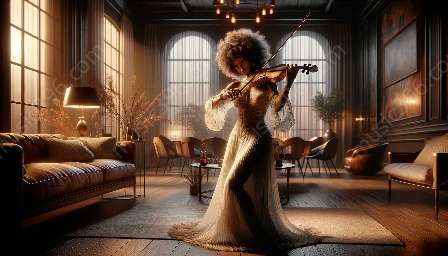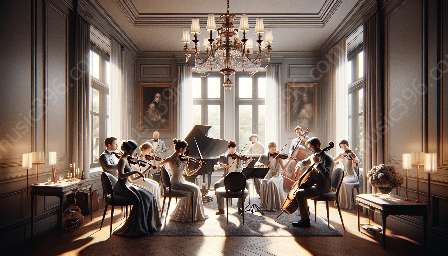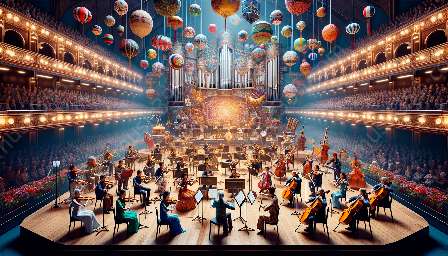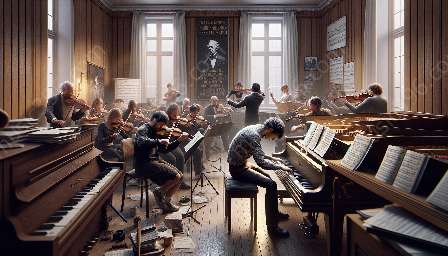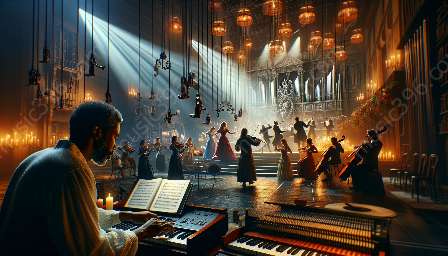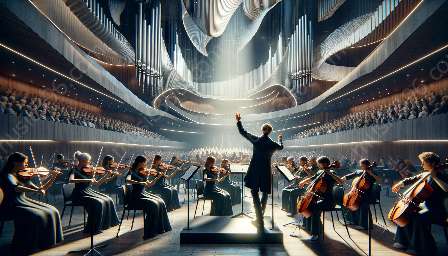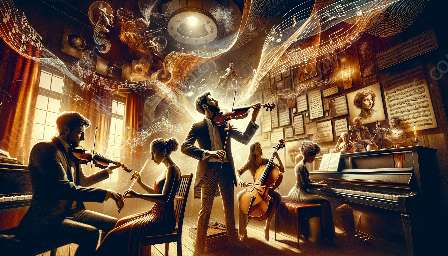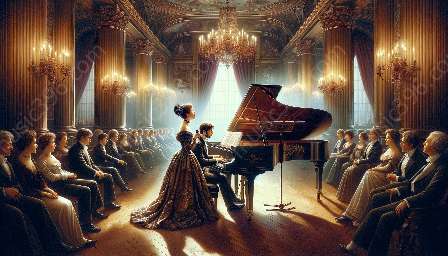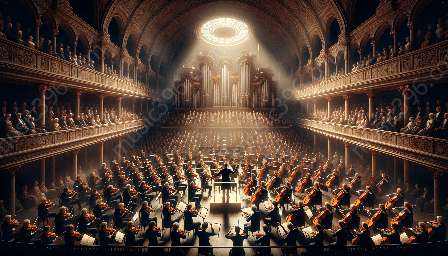Classical music composition is not only the product of individual genius, but also a reflection of the socio-political climate in which it was created. The genre of symphony and concerto, in particular, has been greatly influenced by the prevailing social and political forces of their respective time periods. This topic cluster aims to delve into the historical context of classical music, elucidating how composers were influenced by the societies and political systems in which they lived.
Impact of Societal Norms and Values
Composers often drew inspiration from the prevailing societal norms and values of their time. During the classical era, which spanned from the mid-18th to the early 19th century, the societal structure was characterized by a hierarchical system where royalty and the aristocracy held considerable power. Composers such as Ludwig van Beethoven and Wolfgang Amadeus Mozart were both products of this societal structure, which is reflected in their compositions. Beethoven's symphonies, for instance, exude a sense of heroism and triumph, perhaps influenced by the prevailing societal values of the time.
In the romantic era, which followed the classical period, societal values began to shift, placing a greater emphasis on individualism and the expression of personal emotions. This shift is palpable in the compositions of romantic-era composers such as Pyotr Ilyich Tchaikovsky and Johannes Brahms. Tchaikovsky's emotionally charged symphonies and concertos reflect the heightened emphasis on individual expression and personal experiences, indicative of the changing societal values of the time.
Political Turmoil and its Influence
Political upheavals and revolutions have also played a significant role in shaping classical music composition. The French Revolution, for instance, had a profound impact on the works of composers like Ludwig van Beethoven. His third symphony, often referred to as the 'Eroica' symphony, was initially dedicated to Napoleon Bonaparte, a figure who initially represented the ideals of the revolution. However, Beethoven later retracted the dedication in response to Napoleon declaring himself Emperor, demonstrating the composer's deep engagement with the political events of the time.
Furthermore, during the Soviet era in Russia, composers such as Dmitri Shostakovich grappled with the oppressive political regime. Shostakovich's symphonies and concertos were often scrutinized by the communist authorities for their supposed ideological subversion. The fourth symphony, which was composed during a particularly repressive period, was banned by the Soviet authorities, reflecting the immense influence of political tensions on the creative output of composers.
Revolutionary Movements and Musical Innovation
It is important to note that classical music has not merely been a passive reflection of societal and political forces, but has also served as a catalyst for revolutionary movements. The symphonies of Ludwig van Beethoven, particularly his ninth symphony, have been regarded as a symbol of freedom and unity due to its inclusion of Friedrich Schiller's 'Ode to Joy' poem, celebrating universal brotherhood. This demonstrates how classical music, particularly symphonies, has been utilized to convey revolutionary ideals and inspire social change.
Moreover, the concerto form has also been influenced by revolutionary and innovative impulses. The piano concertos of Frédéric Chopin, for example, showcased an innovative approach to the traditional concerto form, emphasizing lyricism and introspection. Chopin's concertos not only reflected the changing societal values of his time but also contributed to the evolution of the concerto genre, influencing future composers.
Legacy and Contemporary Relevance
The impact of social and political influences on classical music composition extends beyond the historical context and continues to be relevant in contemporary times. Composers continue to grapple with societal issues and political events, and their compositions serve as poignant reflections of the prevailing circumstances. Moreover, the enduring legacy of classical music allows contemporary audiences to engage with the historical and cultural significance of these compositions, fostering a deeper understanding of the interplay between societal dynamics and musical expression.
In conclusion, the composition of classical music, particularly symphonies and concertos, has been profoundly shaped by social and political influences throughout history. From the hierarchical structures of the classical era to the revolutionary fervor of the romantic period, and from the impact of political turmoil to the catalytic role of musical innovation, classical music has served as a mirror to the dynamics of the societies and political systems in which it was created. Understanding the intricate interplay between social and political influences and classical music composition enriches our appreciation of these timeless musical masterpieces.

